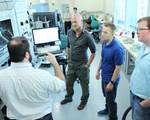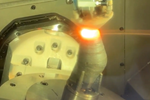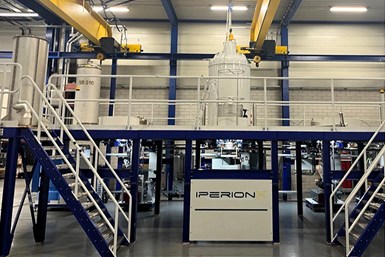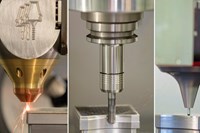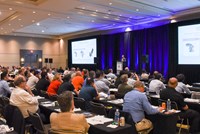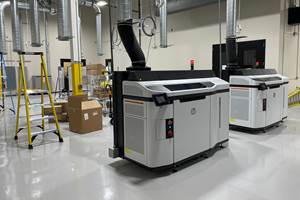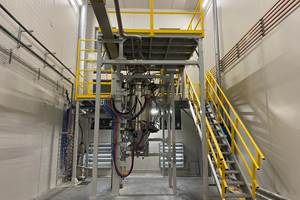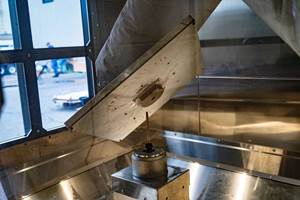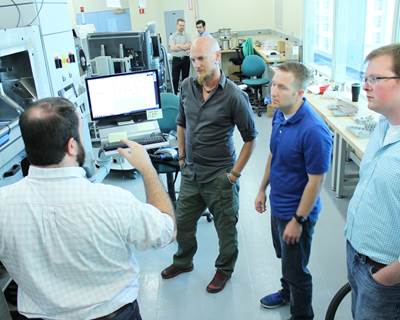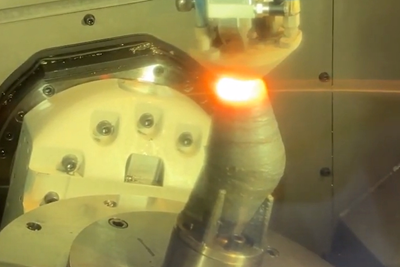IperionX Moves Closer to Commercial Scale US Titanium Production
IperionX’s HAMR titanium furnace, the foundation piece to produce low-cost titanium, has completed final mechanical assembly and successfully passed factory acceptance tests with the IPX technical team.
Share
Read Next
IperionX says it is making significant progress in advancing its commercial-scale titanium metal manufacturing capabilities at its Titanium Manufacturing Campus in Virginia, comprising the Titanium Production Facility and the Advanced Manufacturing Center.
IperionX has also received the first $2.4 million payment from the $12.7 million Department of Defense DPA Title III grant to fund Phase I ramp-up of the Virginia Titanium Production Facility.
Commercial Scale HAMR Titanium Furnace
The facility is being prepped for the HAMR titanium furnace which has completed final mechanical assembly and successfully passed factory acceptance testing overseen by the IperionX technical team. The furnace is being transported from the European manufacturer to the Titanium Manufacturing Campus in Virginia. This large-scale titanium furnace is expected to be installed within the Titanium Production Facility during the second quarter, paving the way for the production of titanium metal in mid-2024.
The furnace is a critical IperionX production asset. It is a large-scale, industrial titanium furnace utilizing patented company technologies, such as HAMR1 and HSPT2, to produce sustainable, high-quality and high-strength titanium metal products at commercial scale. The company says this first production milestone will combine leading innovation and sustainability to set new industry standards in titanium metal production.
Importantly, the application of this conventional furnace technology for titanium production has been de-risked via a comprehensive furnace test work program. In 2023, the IperionX technical team successfully completed two full-scale titanium production test runs that surpassed the core target production parameters for the Titanium Production Facility.
The construction progress of the Titanium Production Facility and the Advanced Manufacturing Center, both in Virginia, is advancing on schedule. The HAMR titanium furnace is expected to be commissioned and to produce first titanium metal in mid-2024. Construction of the Advanced Manufacturing Center is anticipated to be commissioned during the second quarter of 2024. This manufacturing facility will utilize angular and spherical titanium powders from the Titanium Production Facility to manufacture a wide range of low-cost and high-performance titanium products using powder metallurgy, HSPT forging and additive manufacturing (AM). It will also leverage CNC machining, postprocessing equipment and advanced R&D laboratories to support customer and government engagement.
“IperionX is nearing an important milestone designed to revitalize the U.S. titanium supply chain with a unique end-to-end solution that spans from recycled scrap titanium to high-performance forged titanium products,” says Anastasios (Taso) Arima, IperionX CEO. “Our patented titanium technologies can produce a wide range of high-performance titanium products — including angular and spherical titanium powders, semifinished titanium products, near-net titanium shape products and additively manufactured titanium components — with superior energy efficiency, lower costs and lower environmental impacts.”
The company says it has a strong pipeline of potential U.S. government funding and incentive programs designed to reshore and secure critical mineral and metal supply chains. “The commissioning of our Virginia Titanium Manufacturing Campus will be a pivotal step forward, positioning IperionX with an innovative end-to-end titanium supply chain capable of manufacturing high-performance and low-cost titanium products for advanced American industries,” Arima adds.
IperionX says it has developed an ‘end-to-end’ American titanium supply chain solution that spans from the production of domestically sourced titanium minerals, the technology to upgrade these minerals to +99% TiO2, as well as the ability to utilize the largest range of recycled scrap titanium as feedstocks for low-cost titanium metal production.
The company says it can produce low-cost and high-quality angular and spherical titanium powder to produce titanium semifinished stock products (such as ingot, bar, plate, wire and more) for advanced applications. It can also use these titanium powders to produce near-net forged titanium alloy shapes and high-value final titanium parts and components using AM.
Its technologies can produce a large range of high-strength forged titanium alloys at low cost, with sustainable, process energy efficiencies compared to other industry methods such as the Kroll process. IperionX’s patented technologies negate the need for titanium metal sponge and ingot, enabling direct manufacturing of higher value titanium products from the billet stage onward.
IperionX’s Titanium Manufacturing Campus in Virginia comprises both the Titanium Production Facility and the Advanced Manufacturing Center. The Titanium Production Facility will produce high-quality and low-cost angular and spherical titanium powders. These titanium metal powders will be marketed to a wide range of customers for use in additive and powder manufacturing. The high-quality titanium powders will also be an important low- cost internal feedstock for the Advanced Manufacturing Center, where they will be utilized to manufacture a wide range of higher value titanium products such as semifinished traditional mill products, near-net shape forged titanium components and high-value titanium products using additive manufacturing.
Related Content
Next-Gen Horse Trailers to Be Built With Robotic 3D Printing
Double D Trailers is currently developing a prototype horse trailer that will be made with large-format additive manufacturing. The technology brings potential benefits for labor, weight and design features to this subset of recreational vehicles.
Read MoreWhat Does Additive Manufacturing Readiness Look Like?
The promise of distributed manufacturing is alluring, but to get there AM first needs to master scale production. GKN Additive’s Michigan facility illustrates what the journey might look like.
Read MoreCan the U.S. Become Self-Sufficient in Aerospace Alloy Metal Powders?
6K’s technology can upcycle titanium and nickel-alloy parts into additive manufacturing powder. Here is how the circular economy helps national security.
Read MoreThe Cold Spray Solution to the Casting, Forging Supply Chains
Startup HAMR Industries performs additive manufacturing work at Neighborhood 91 that provides an alternative to traditional casting and forging. Success so far has led to redefining the limits of its additive equipment.
Read MoreRead Next
4 Ways the Education and Training Challenge Is Different for Additive Manufacturing
The advance of additive manufacturing means we need more professionals educated in AM technology.
Read MoreAt General Atomics, Do Unmanned Aerial Systems Reveal the Future of Aircraft Manufacturing?
The maker of the Predator and SkyGuardian remote aircraft can implement additive manufacturing more rapidly and widely than the makers of other types of planes. The role of 3D printing in current and future UAS components hints at how far AM can go to save cost and time in aircraft production and design.
Read MoreHybrid Additive Manufacturing Machine Tools Continue to Make Gains (Includes Video)
The hybrid machine tool is an idea that continues to advance. Two important developments of recent years expand the possibilities for this platform.
Read More

